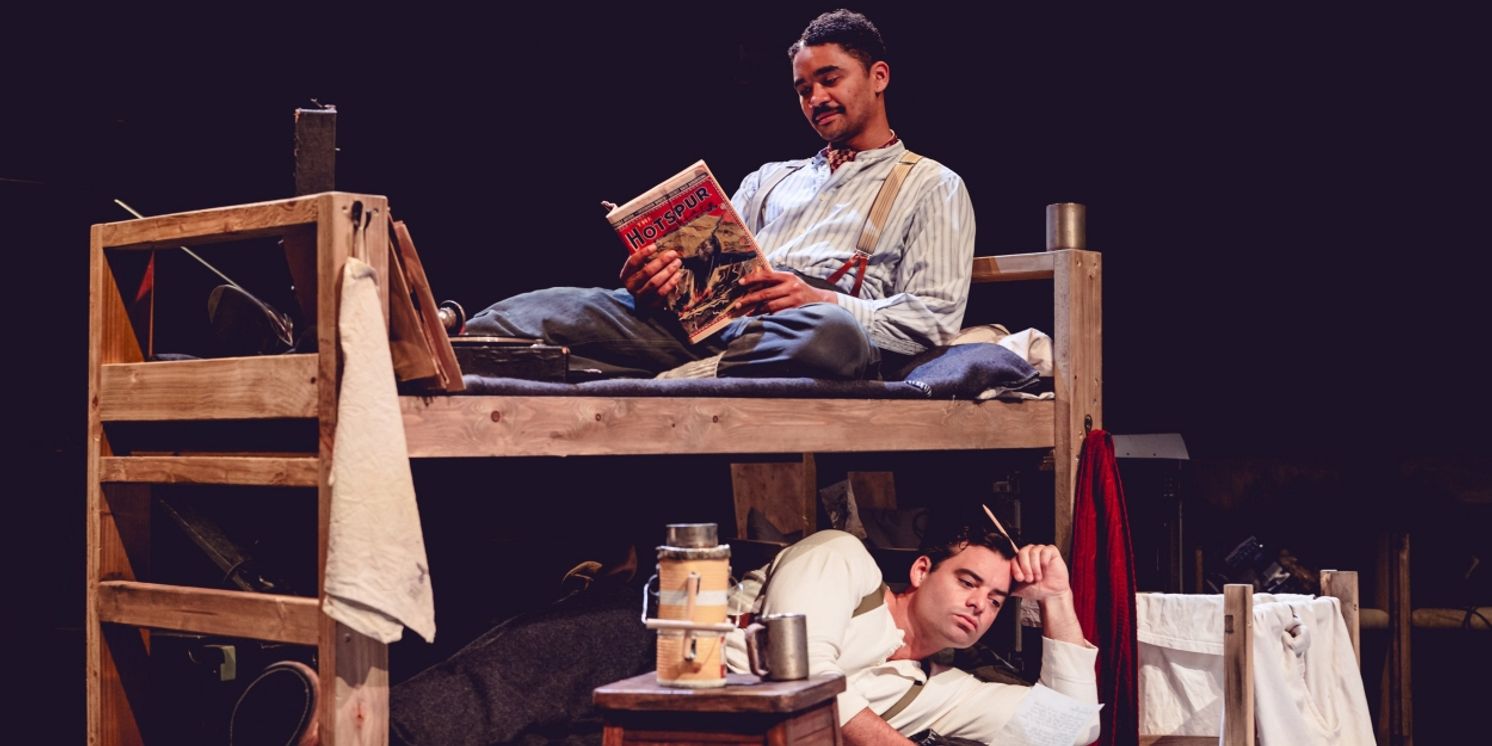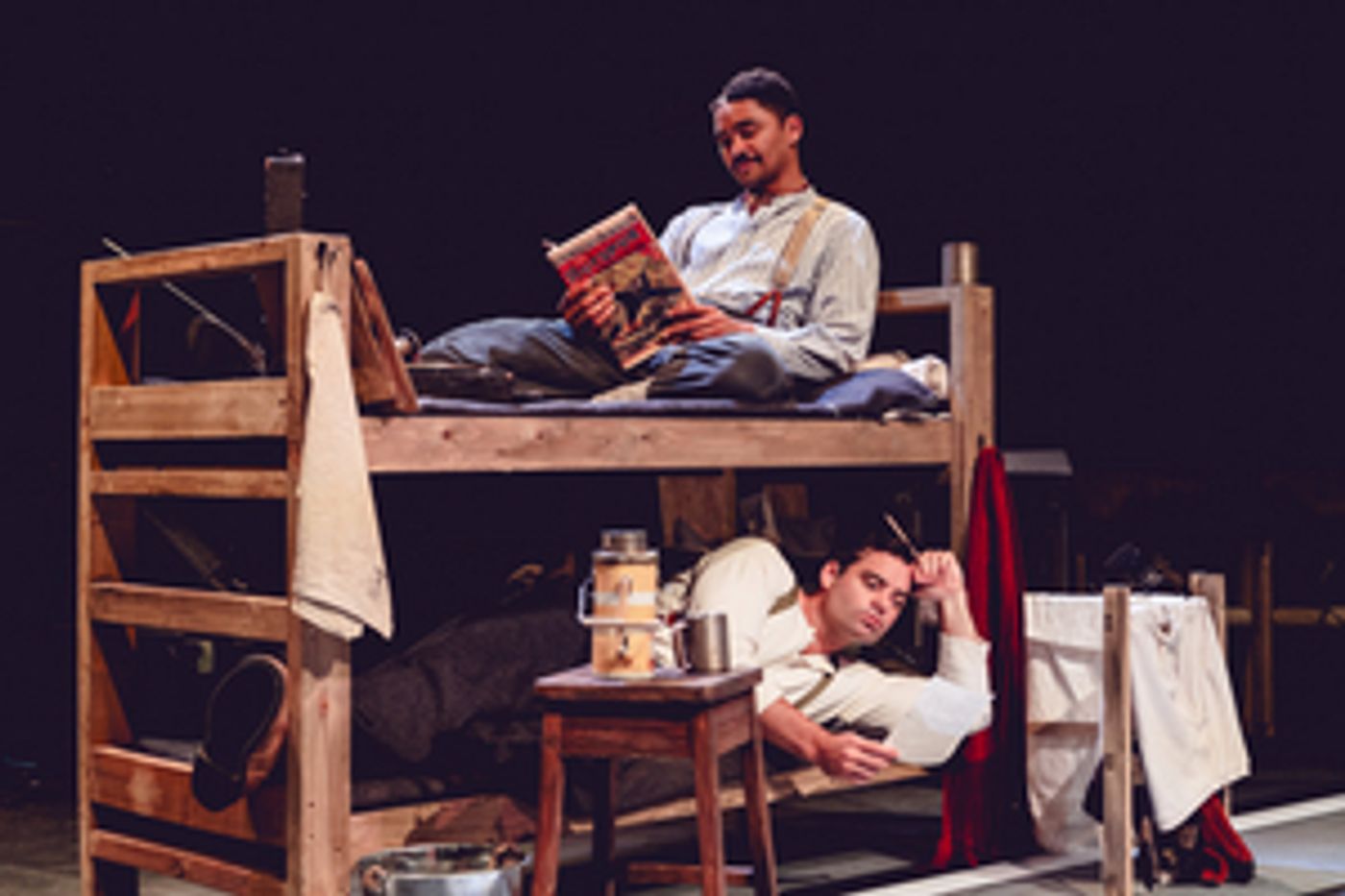Review: TOM, DICK AND HARRY, Alexandra Palace Theatre
Wartime escape drama fails to break free from the constraints of its venue and run time


 There's a story told about footballer, Paul Gascoigne. He hid a dead fish in a teammate's car and, once the smell was high, it was discovered and disposed of. But the smell lingered, indeed, strengthened. Gazza had hidden a second fish - but who would go looking for that after the first one had been found?
There's a story told about footballer, Paul Gascoigne. He hid a dead fish in a teammate's car and, once the smell was high, it was discovered and disposed of. But the smell lingered, indeed, strengthened. Gazza had hidden a second fish - but who would go looking for that after the first one had been found?
Such was the thinking behind Tom, Dick and Harry, the three tunnels simultaneously excavated by allied prisoners at Stalag Luft III, which held captured Allied airmen during World War II. The reasoning went that if guards found one tunnel, they would congratulate themselves and sit back for a while believing that another would take months to progress. Meanwhile...
It's an extraordinary tale and one that has spawned many books and the famous film, The Great Escape. That was Hollywood more than history, so writers, Theresa Heskins, Michael Hugo and Andrew Pollard took a different approach. They went to the original sources, did primary research at the National Archive, listened to interviews with those who were there. What emerges is something a little different.
Since the days of the Red Baron, airmen have always been glamorous, bold and resourceful. They're not mired in the mud of a battlefield or at isolated at sea for months on end. They fly into extreme danger and, if they're lucky, return to base and the comforts of warmth, food (and women). There's also a hang-over from the days of the cavalry, a chivalrous code that binds enemies in the air who, not surprisingly, have much in common.
This comes through in the play. The Camp Kommandant clearly enjoys the company of the British officers more than his own conscripts, skivvies of a different class and outlook. The Geneva Convention allowed for some home comforts and a looseness in discipline developed, some guards as trapped as the prisoners and keen for social company. And the ever-present need for the English public schoolboy to have someone to humiliate is also in play, a bully bullied by men over whom he has a very temporary power. Rather as PG Wodehouse suggested in his account of internment, it's all a bit boarding school banter, intense comradeship and high jinx.
While all that played out in the open, under cover of singing and gymnastics, Americans, Jamaicans, Dutchmen, Czechoslovakians and Australians were digging tunnels, forging papers, stitching clothes and covering tracks. It was a vast operation, run with military discipline and it damn nearly worked.
Andrew Pollard doubles as Commanding Officer on both sides - a telling piece of casting - but it's Dominic Thorburn's dashing Squadron Leader Ballard who builds morale, masterminds the strategy and stands firm when the plan wobbles. David Fairs makes for a splendid smallminded villain in Giesler and Andrius Gaučas has a lot of fun with his Czech tailor, the running joke (don't all-male societies just love a running joke?) is that he's from Transylvania.
Transferring in from a successful run at the New Vic Theatre in Newcastle-Under-Lyme, press were invited to the first performance at this spectacular, but unsympathetic venue. As is always the case in the round, the trade-off is between the flexibility afforded to director, Heskins (which she uses to great effect) and the inevitability that some actors will often have their backs to you. Frankly, when that happened, I couldn't hear clearly (and sometimes not at all), the speeches disappearing into the vast space and echoing off the exposed brickwork. I understand that there is something in train to alleviate the problem, but it really wasn't good enough for a paying public.
The play is also too long at two and a half hours including an interval - billed to start on opening night at 7pm, it did not finish until after 9.50pm (at a venue that even locals find tricky to access). That run time isn't helped by a curiously imbalanced epilogue that focuses on a hitherto minor character who recounts his trek across Europe to neutral Spain in more detail than surely anyone could need. Then, the men whom we have grown to love step forward with barely a moment to say what happened to them - usually it's not good - but I can't have been alone in feeling short-changed, even if it would send the audience away on a downer.
Often one feels a play will improve deeper into its run and I can write that with some confidence in this case, but it's not working in its space at the moment. A different matter is whether we really need another World War II story, another set of lads joshing with each other, another comically authoritarian Nazi? I'm unconvinced that the play really made its case in answering those questions, some 80 years on from the events depicted.
Tom, Dick and Harry is at the Alexandra Palace Theatre until 28 August
Photo Credit: Andrew Billington
Reader Reviews
Videos

